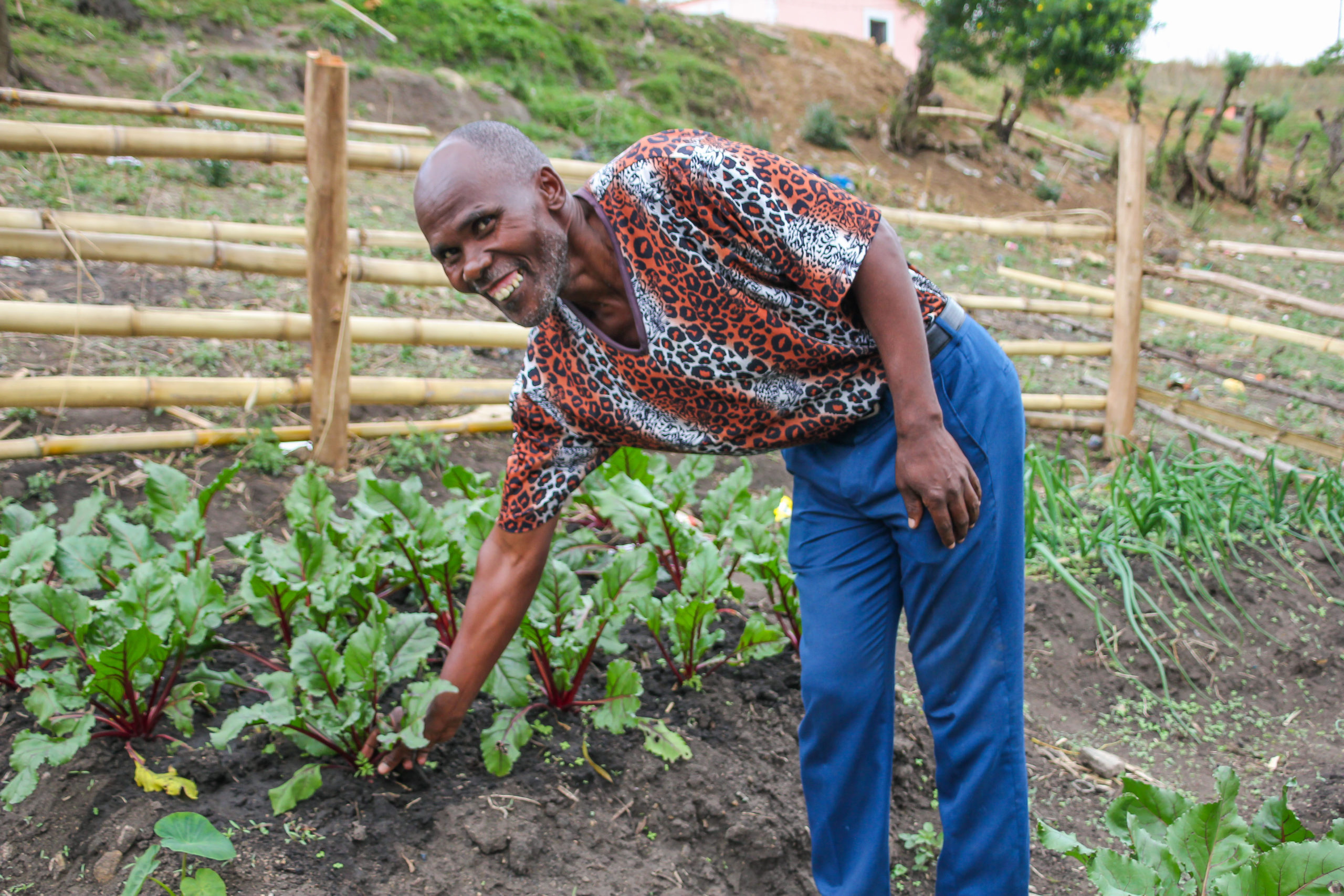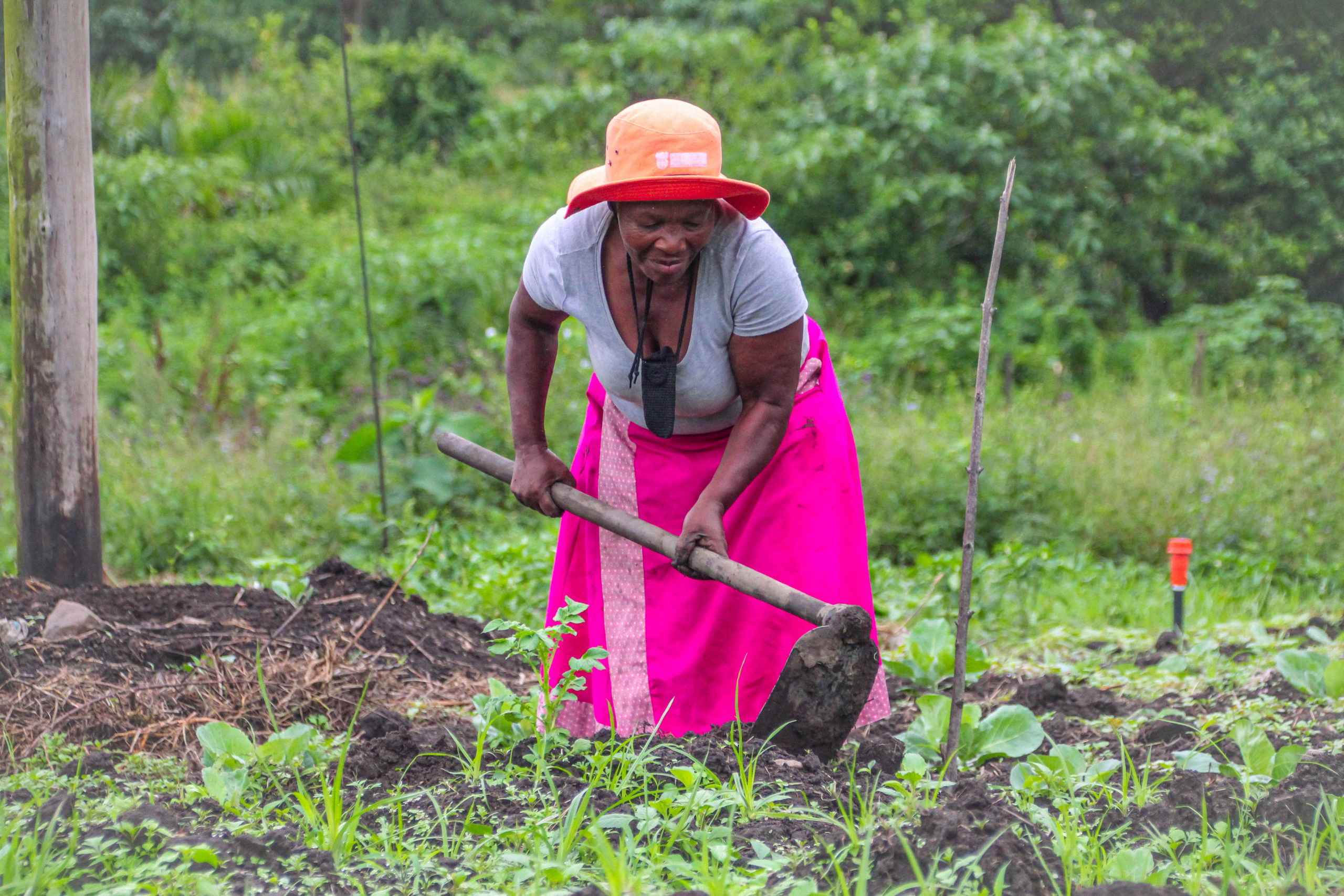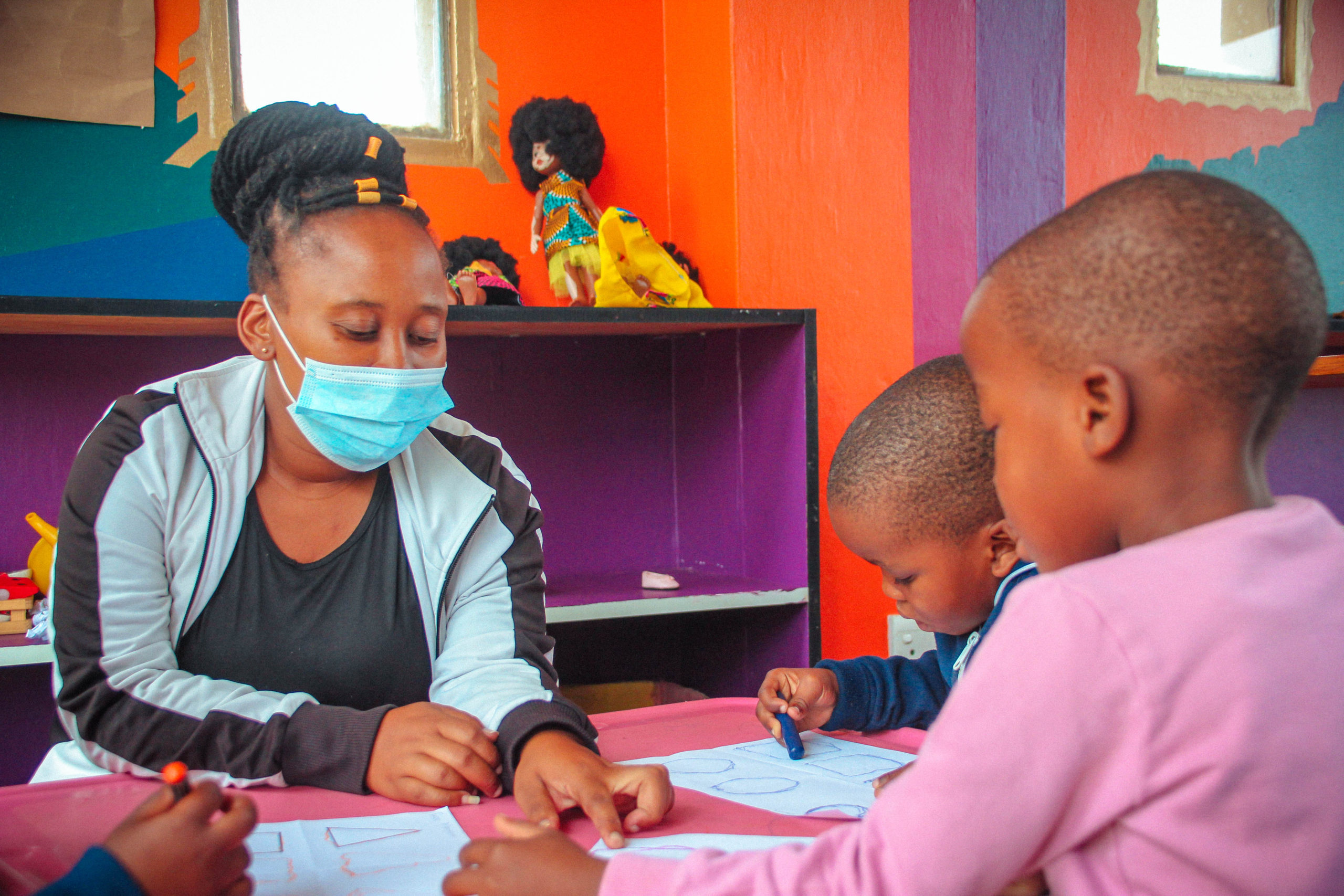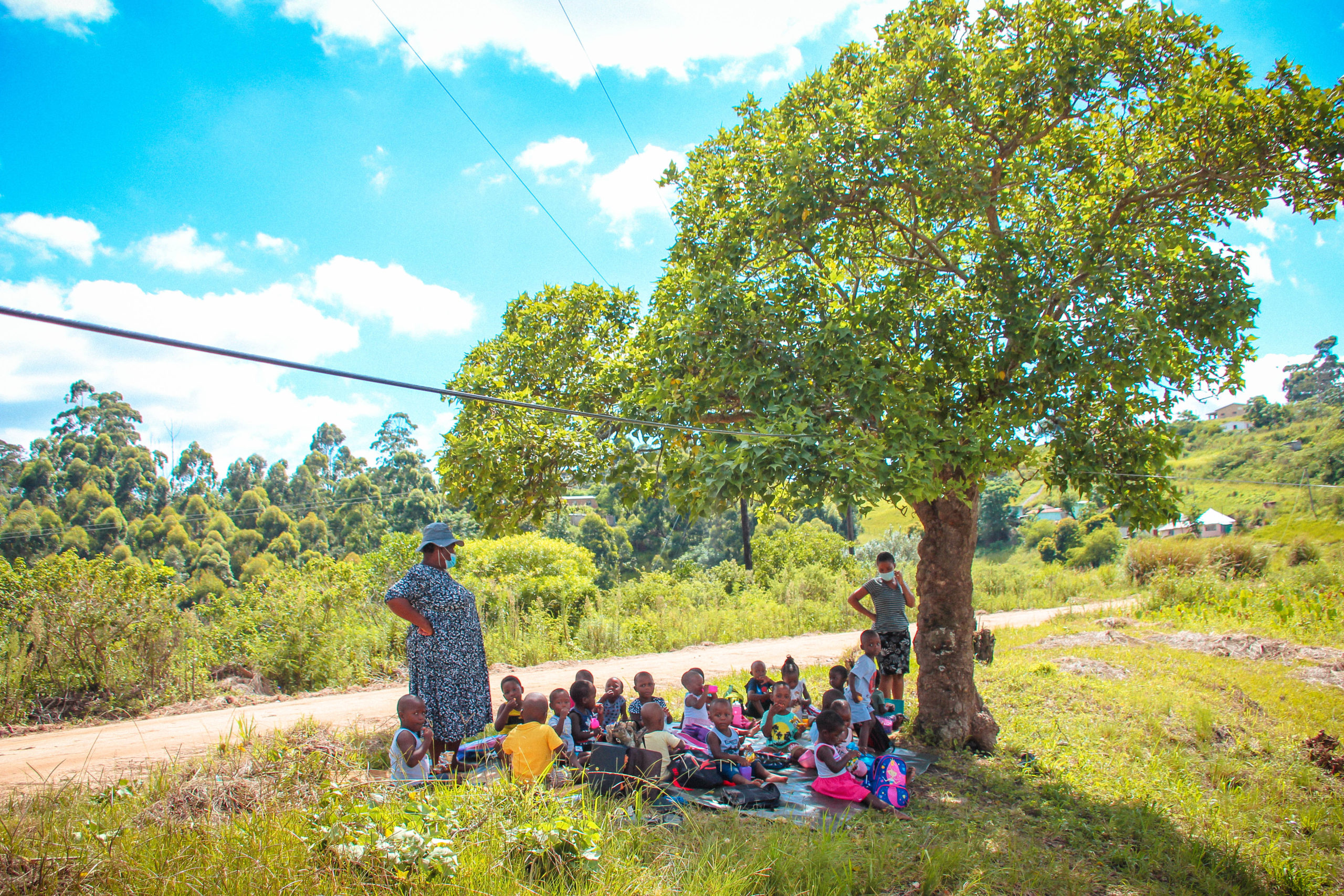At Thanda we’ve always taken a holistic approach.
In the early days, when we saw children’s attention spans waning during our after-school sessions we introduced a feeding scheme. Understanding the importance of eating nutritious food at every meal of the day, rather than only at Thanda, we then introduced an Organic Farming Programme. This meant a consistent supply of affordable, fresh, organic vegetables to our community, so that whether they are eating at Thanda or at home, their meals are dense with nutrition. This encourages healthy bodies and receptive minds for not only children, but the whole family.
Our Programmes have developed accordingly over the years, seeing a gap in the bigger picture and providing a springboard to help the community fill the gap.
As a result of our intentionally holistic approach, all of our programmes are interconnected.
Our Learning at Home Programme is designed so that our participants are never without opportunities for education. Whether the children are at home because of school holidays, during lockdown or just an average weekend, they have resources at their disposal to continue their learning.
Recently, as part of our Learning at Home curriculum, we distributed a theme called My Little Garden. This theme is based on a wordless Book Dash picture book and tells the story of a little boy and his dad who find an empty plot filled with garbage and turn it into a lovely vegetable garden. It is a great example of the interconnectedness of our programmes. (contd)
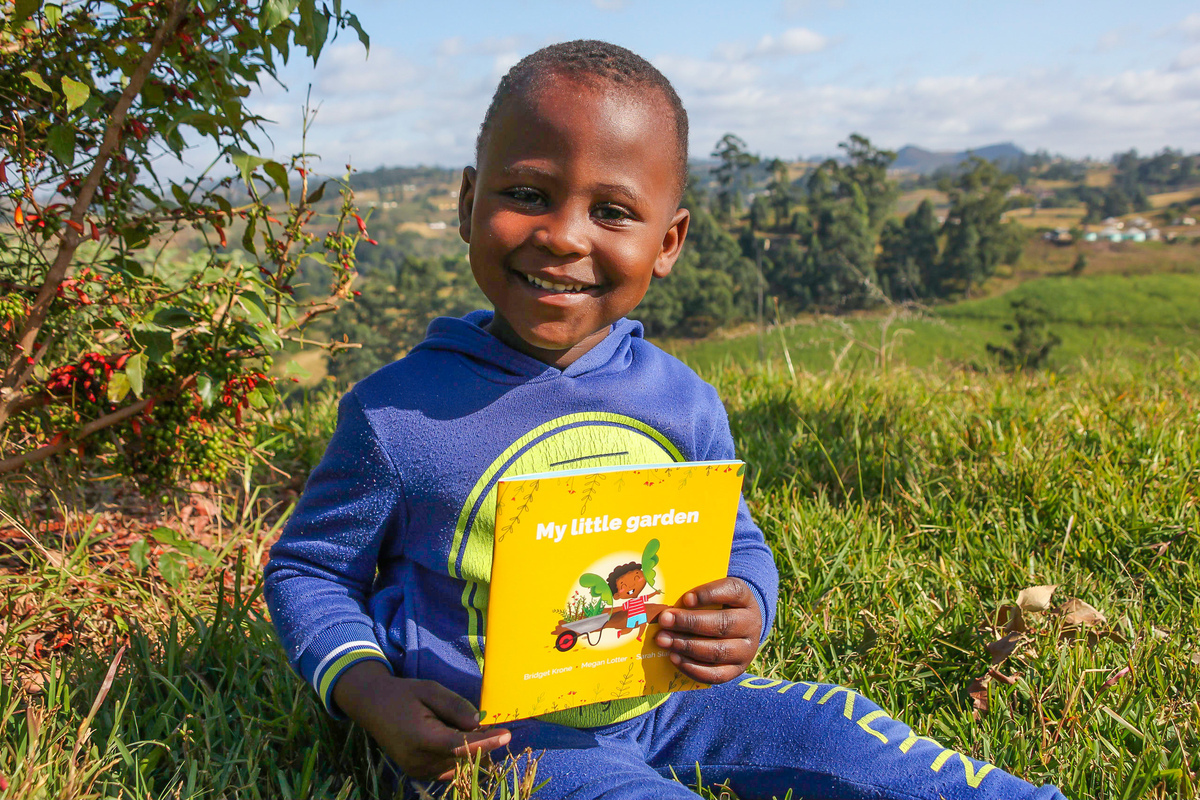
During the COVID-19 pandemic we introduced a new programme to the Organic Farming Initiative fold called Household Gardens. This programme helps participants to cultivate their backyards into crop-yielding mini-farms. It assists families who do not have the capacity to farm on full sized plots (as with our Nisela Programme), to grow their own food, thereby increasing their food security. Participants are allocated a dedicated mentor to help them learn the intricacies of organic farming and to troubleshoot when things might not be growing optimally. The Household Gardens programme has been wildly successful and is growing and growing, with more households being added to the programme all the time. (contd)
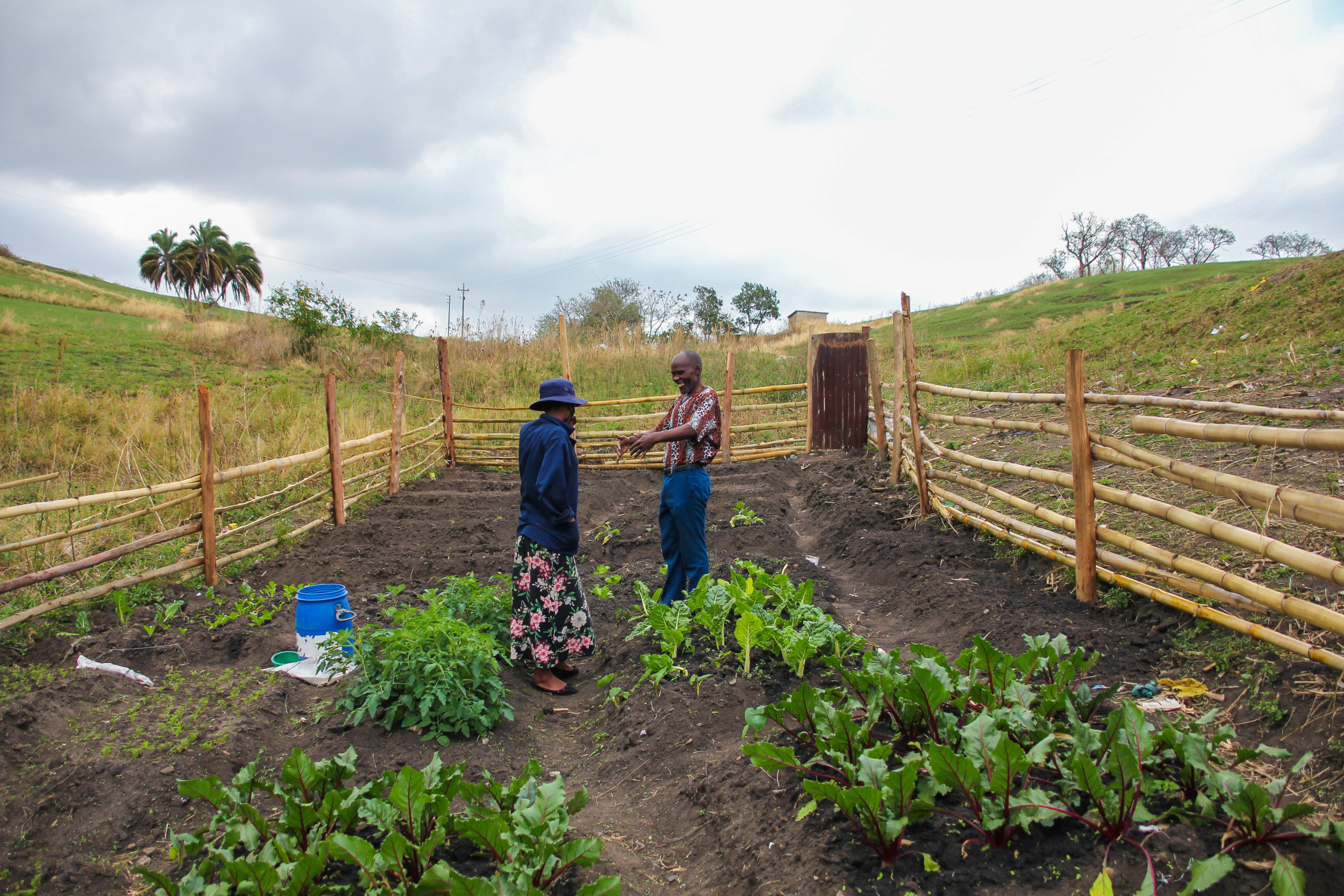
This month’s Learning at Home theme brought Household Gardens into the spotlight and it helped to educate both the children participants and the guardians who act as facilitators to their children for the Learning at Home sessions, on the importance of eating a healthy, organic vegetables as well as caring for the environment in general. It encouraged all members of the household to get involved in the household farming activities. This is a great way for children to spend their time while on school holidays or weekends as it is both productive and helps them build important skills. If one knows how to grow one’s own food, food insecurity can be vastly decreased!
The Thanda mission has always veered away from providing charitable hand-outs. Instead, our aim is to empower the humans within our community to become compassionate, engaged, contributing members of society. Through the upskilling opportunities offered in our programmes, we hope that they will be able to stand on their own two feet using the skills they have learned. We know that this is easier said than done and that our programmes do not exist in a vacuum. They rely on many factors to be successful. This is why support from all angles is necessary and the reason for us placing such high importance on programme interconnectedness. This month’s Learning at Home theme, which intersects with our Household Garden Programme is a great example of one of the many ways our programmes interconnect in an effort to empower community members to achieve their own success. (end)
